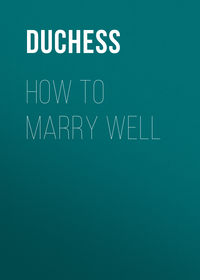 полная версия
полная версияRossmoyne
Together they move to the window and look out upon the awakening world; and, even as they gaze enraptured at its fairness, the sun shoots up from yonder hill, and a great blaze of glory is abroad.
"Over the spangled grassSwept the swift footsteps of the lovely light,Turning the tears of Night to joyous gems.""Oh, we have delayed too long," says Monica, with a touch of awe engendered by the marvellous and mystic beauty of the hour. "Good-night, good-night!"
"Nay, rather a fair good-morrow, my sweet love," says Desmond, straining her to his heart.
CHAPTER XXV
How The Desmond's mind is harrassed by a gentle maiden and two ungentle roughs; and how the Land League shows him a delicate attention.
"By the by," says old Mr. Desmond, looking at his nephew across the remains of the dessert, "You've been a good deal at Aghyohillbeg of late: why?"
It is next evening, and, Monica being at Moyne and inaccessible, Brian is at Coole. Mr. Kelly is walking up and down on the gravelled walk outside, smoking a cigar.
"Because Miss Beresford was there," says Brian, breaking a grape languidly from the bunch he holds in his hand.
"What!" says Mr. Desmond, facing him.
"Because Miss Beresford was there."
"What am I to understand by that?"
"That she was there, I suppose," says Brian, laughing, "and that I am head over ears in love with her."
"How dare you say such a thing as that to me?" says the squire, pushing back his chair and growing a lively purple. "Are you going to tell me next you mean to marry her?"
"I certainly do," says Brian; "and," with a glance of good-humored defiance at the squire, "I'm the happiest man in the world to-day because she last night told me she'd have me."
"You shan't do it!" says the squire, now almost apoplectic. "You shan't do it! – do you hear? I'm standing in your poor father's place, sir, and I forbid you to marry one of that blood. What! marry the daughter – of – of – " something in his throat masters him here, – "the niece of Priscilla Blake, a woman with a tongue! Never!"
"My dear George, you wouldn't surely have me marry a woman without one?"
"I think all women would be better without them; and as for Priscilla Blake's, I tell you, sir, Xantippe was an angel to her. I insist on your giving up this idea at once."
"I certainly shan't give up Miss Beresford, if that is what you mean?"
"Then I'll disinherit you!" roars the squire. "I will, I swear it! I'll marry myself. I'll do something desperate!"
"No, you won't," says Brian, laughing again; and going over to the old man, he lays his hands upon his shoulders and pushes him gently back into his chair. "When you see her you will adore her, and she sent her love to you this morning, and this, too," laying a photograph of Monica before the Squire, who glances at it askance, as though fearful it may be some serpent waiting to sting him for the second time; but, as he looks, his face clears.
"She is not like her mother," he says, in a low tone.
"I never met such a remorseful old beggar," thinks Desmond, with wonder; but just at this moment a servant enters with a message to the squire; so the photograph is hastily withdrawn, and the conversation – or rather discussion – comes to an end.
"Two of the tenants are asking to see you, sir," says the butler, confidentially.
"What two?"
"Donovan, from the East, and Moloney, from the Bog Road, sir."
"Very well; show Moloney into the library, and tell Donovan to wait downstairs until I send for him."
"Yes, sir."
"Well, Moloney, come to pay your rent?" says the squire, cheerfully, entering the library and gazing keenly at the man who is awaiting him there. He is a fellow of ordinary build, with a cringing, servile expression and shifting eyes. He smiles apologetically, and shuffles uneasily from one foot to the other as he feels the squire's eye upon him.
"No, sir; I can't bring it, sir. I'd be in dhread o' my life wid the boys to do it."
"I don't know who the gentlemen in question you designate as 'the boys' may be," says the squire, calmly. "I can only tell you that I expect my rent from you, and intend to get it."
"That's what I come to spake about, yer honor. But the Land League is a powerful body, an' secret too; look at the murdher o' Mr. Herbert and that English Lord in Faynix Park, and the rewards an' all, an' what's come of it?"
"A good deal of hanging will come of it, I trust," says The Desmond, hopefully. "In the mean time, I am not to be detered from doing my duty by idle threats. I thought you, Moloney, were too respectable a man to mix yourself up with this movement."
"I'm only a poor man, sir, but my life is as good to me as another's; an' if I pay they'll murdher me, an' what'll become o' me then? An' besides, I haven't it, sir; 'tis thrue for me. How can I be up to time, wid the crop so bad this year."
"It is as good a year as I have ever known for crops," says Desmond. "I will have no excuses of that sort: either you pay me or turn out; I am quite determined on this point."
"Ye wouldn't give me an abatement, yer honor?"
"No, not a penny. Not to men such as you, who come here to demand it as a right and are very well to do. There are others whose cases I shall consider; but that is my own affair, and I will not be dictated to. On Monday you will bring me your rent, or give up the land."
"I think ye're a bit unwise to press matthers just now," says the man, slowly, and with a sinister glance from under his knitted brows. "I don't want to say anything uncivil to ye, sir, but – I'd take care if I were you. The counthry is mad hot, an', now they think they've got Gladstone wid 'em, they wouldn't stick at a trifle."
"The trifle being my assassination," says old Desmond, with a laugh. He draws himself up, and, in spite of his ugly face, looks almost princely. "Tut, man! don't think, after all these years among you, I am to be intimidated: you should know me better."
The man cowers before the haughty glance the old squire casts upon him, and retreats behind his cringing manner once again.
"I thought ye might take into considheration the fact that I'm of yer own religion," he says cunningly.
"That you are a Protestant does not weigh with me one inch. One tenant is as worthy of consideration as another; and, to tell the truth, I find your Roman Catholic brethren far easier to deal with, I will have no whining about differences of that sort. All I require is what is justly due to me; and that I shall expect on Monday. You understand?"
"Ye're a hard man," says Moloney, with an evil glance.
"I expected you to say nothing else. All the kindness of years is forgotten because of one denial. How often have I let you off your rent entirely during these twenty years we have been landlord and tenant together! There, go! I have other business to attend to. But on Monday, remember."
"Ye won't see me that day or any other," says the fellow, insolently, sticking his hat on his head with a defiant gesture.
"Very good. That is your own lookout. You know the consequences of your non-arrival. Denis," to the footman, "show this man out, and send Donovan here."
"Yes, sir."
"Well, Donovan, what is it?" says Desmond, a few minutes later, as the library door again opens to admit the other malcontent. He is a stout, thick-set man, with fierce eyes and a lowering brow, and altogether a very "villanous countenance." He has mercifully escaped, however, the hypocritical meanness of the face that has just gone. There is a boldness, a reckless, determined daring about this man, that stamps him as a leading spirit among men of evil minds.
"I've come here to spake to ye to-night, Misther Desmond, as man to man," he says, with a somewhat swaggering air.
"With all my heart," says The Desmond; "but be as fair to me as I have ever been to you and yours, and we shall come to amicable terms soon enough."
"As to fairness," says the man, "I don't see how any landlord in Ireland can spake of it without a blush."
Strange to say, the aggressive insolence of this man fails to rouse in Mr. Desmond's breast the anger that the servile humility of the last comer had brought into active being.
"Look here, Donovan," he says, "I've been a good landlord to you; and I expect you, therefore, to be a good tenant to me. You hint that I, along with the rest, have dealt unfairly with my people; but can you prove it? You can lay to my charge no tales of harshness. In famine times, and when potatoes failed, in times of misfortune and sickness, I have always stood your friend, and the friend of every man, woman, and child on my estate; yet now what harvest do I reap, save grossest ingratitude? yet what more can I hope for in this most unhappy time, when blood is unrighteously poured upon the land, and the laws of God and my queen are set at naught?"
There is a touch of passionate old-world grandeur in the squire's face and manner that works a sense of admiration in Donovan's breast. But it quickly gives way to the carefully-cultivated sense of injury that has been growing within him for months.
"Ye can talk, there's no doubt," he mutters; "but words go for little; and the fact is, I've got no rent to pay ye."
His tone conveys the idea that he has the rent, but deliberately refuses to pay it.
"You will bring it on Monday, or I shall evict you," says the Squire quietly. "You hear?"
"I hear," says the man, with an evil frown. "But ye can't have it all yer own way now, Misther Desmond. There's others have a voice in the matther."
"I don't care for innuendoes of that sort, or for any insolence whatever; I only mean you to fully know that I must live as well as you, and that therefore I must have my rents."
"I know well enough what ye mane," says the man, with increasing insolence. "But I'd have you know this, that maybe before long ye'll whistle another tune. There's them I could mention, as has their eye upon ye, an' will keep it there till justice is done."
"Meaning, until I give up Coole itself to the mob," says the squire, with a sneer.
"Ay, even that, it may be," says the man, with unswerving defiance.
"You dare to threaten me?" says The Desmond, throwing up his head haughtily, and drawing some steps nearer to his tenant.
"I only say what is likely to prove truth before long," returns the man, sturdily, and giving in an inch. "That we'll have no more tyranny, but will have a blow for our rights, if we swing for it."
"You can shoot me when and where you like," says Desmond, with a shrug. "But I am afraid it will do you no good."
"It will be a lesson to the others," says the man between his teeth.
"To you others, – yes; because it will make my heir somewhat harder on you than I am. The Desmonds never forgive. However, that is more your lookout than mine. A last word, though: if you were not the consummate idiots this last revolt has proved you, you would see how you are being led astray by a few demagogues (a butcher's boy, perchance, or an attorney's clerk pushed by you from absolute obscurity into a Parliament ashamed to acknowledge them), who will save their skins at the expense of yours at the last, and who meanwhile thrive royally upon the moneys you subscribe!"
"That's a damned lie for ye," says Donovan losing his temper altogether.
At this outbreak The Desmond rises slowly, and, ringing the bell, calmly pares his nails until a servant comes in answer to his summons.
"Ask Mr. Brian to come here for a moment," he says, calmly, not lifting his eyes from the fourth finger of his left hand, upon the nail of which he is just now employed.
Brian lounging in, in a few moments, his uncle pockets his penknife, and, waving his hand lightly in Donovan's direction, says, gravely, —
"This man, Donovan, will be one of your tenants, some time, Brian," – plainly, he has forgotten all about his determination to marry again, and so dispossess his nephew of Coole and other things, or else one glance at Monica's portrait (in which she had appeared so unlike her mother) has done wonders: "it is therefore as well you should learn his sentiments towards his landlord, especially as he is apparently the mouthpiece of all the others. Oblige me, Donovan, by repeating to Mr. Brian all you have just said to me."
But the man is far too clever a lawyer to commit himself before a third party.
"I have nothing to say," he answers, sullenly, "but this, that times are hard an' money scarce, an' – "
"We will pass over all that. It is an old story now; and, as you decline to speak, I will just tell you again, I intend to have my rent on Monday, and if I don't I shall evict you."
"Ay! as you evicted Ned Barry last month, throwing him on the open road, with his wife beside him, an' a baby not a month old."
"Nonsense! the child was six months old, and Barry was better able to pay than any tenant I have, and more willing, too, until this precious Land League tampered with him. He has proved he had the money since, by paying a sum to Sullivan yonder for board and lodging that would have kept him in his own house for twice the length of time he has been there. I know all about it: I have made it my business to find it out."
"Ye're mighty well informed entirely," says Donovan with a wicked sneer.
"If you can't keep a civil tongue in your head, you had better leave this room," says Brian, flushing darkly and making a step towards him.
"Who are you, to order me about?" says the man, with a fierce glance. "Ye're not my master yet, I can tell ye, an' maybe ye never will be."
"Leave the room," says Brian, white with rage, pointing imperiously to the door.
"Curse ye!" says the man; yet, warned by the expression on Brian's face, he moves in a rebellious manner to the door, and so disappears.
"They are the most unpleasant peasantry in the world," says the squire, some hours later, – the words coming like a dreary sigh through the clouds of tobacco-smoke that curl upwards from his favorite meershaum.
He and Brian and Owen Kelly are all sitting in the library, the scene of the late encounter, and have been meditating silently upon many matters, in which perhaps Love has the largest share, considering his votaries are two to one, when the squire most unexpectedly gives way to the speech aforesaid.
"The women are very handsome," says Mr. Kelly.
"Handsome is as handsome does," says the squire with a grunt.
"Don't the Protestant tenants pay?" asks Owen, presently, who is in a blissful state of ignorance about the tenant-right affair generally.
"They're just the worst of the lot," says old Desmond, testily: "they come whimpering here, saying they would gladly pay, but that they are afraid of the others, and won't I let them off? and so forth."
"I wonder," says Brian, dreamily, – it is very late, and he is in a gently, kindly, somnolent state, born of the arm-chair and his pipe, – "I wonder if one was to give in to them entirely, would they be generous enough to – "
"If you can't talk sense," interrupted his uncle, angrily, "don't talk at all. I am surprised at you, Brian! Have you seen or noticed nothing all these years, have you been blind to the state of the country, that you give sound to such utter trash? Pshaw! the weakly sentiment of the day sickens me."
"But suppose one was to humor them. I am not alluding to you, my dear George," to his uncle, – "I know you have humored them considerably, – but I mean landlords generally: would not peace be restored? That fellow Donovan to-day was beyond doubt impertinent to the last degree; but of course he meant nothing: they would, I should think, hesitate, in their own interest, before falling foul of you."
"You don't understand them as I do," says the squire, slowly.
"I still think peace, and not war, should be instilled into them," says Brian. "Too many landlords are harsh and unyielding in an aggravated degree, when a little persuasion and a few soft words would smooth matters. They, of course, are visited with the revenge of the League, whilst such as you escape."
These complacent words are still upon his lips, he has had time to lean back in his chair with the languid air of one who has given to the world views not admitting of contradiction, when a sharp whirring noise is heard, followed by a crash of broken glass and the dull thud of a bullet that has found its home in the wall right opposite the squire. Right opposite Brian, too, for they had been side by side with Owen Kelly, fortunately not quite, but very nearly, opposite.
For a moment nobody quite knows what has happened, so sudden is the thing; and then they spring to their feet, full of the knowledge that a bullet has been fired into their midst.
It had passed right over The Desmond's shoulder, close to his ear, between him and Brian, and had grazed the sleeve of Kelly's coat, who, as I have said, was sitting almost opposite.
With an oath Brian rushes to the window, tears open the shutters, throws up the sash, and jumps down into the garden, followed by Kelly and the Squire.
It is a dark night, murky and heavy with dense rain-laden clouds, and so black as to render it impossible to see one's hand before one. Search after a while is found to be impossible and the cowardly would-be assassin so far is safe from arrest. Dispirited and indignant, they return to the room they left, to discuss the outrage.
"Now, who will preach to me of peace again?" says the squire turning to Brian a face pale with excitement.
"Not I," says Brian, with a face pale as his own, and eyes that burn fiercely with the wrath of an incomplete revenge.
"I retract every foolish word I said a few minutes since. Henceforth it shall be war to the knife between me and my tenantry, as well as yours."
"War to the bullet would be more in harmony," says Mr. Kelly, seriously. He has extracted the bullet in question from the wall with the aid of a stout penknife, and is now regarding it mournfully as it lies in the palm of his hand. "Don't you think they take a very unfair advantage of you?" he says, mildly. "They come here and shoot at you; why don't you go to their cabins and shoot at them?"
"Let them keep their advantage," says Brian, disdainfully. "We shall conquer at last, no matter how many lives it costs us."
"At all events, they won't get a glimpse of the white feather here," says the squire, who is looking quite ten years younger. There is nothing like a row for an Irishman, after all.
"Still, I think I wouldn't sit with my back to that window any more, if I were you," suggests Mr. Kelly, meekly, seeing the squire has sunk into his usual seat again.
"It will be a bad winter, I fear," says the squire shaking his head.
"A lively one, no doubt. I quite envy you. I should rather like to stay here and see you through it. My dear sir, if you and that enormous chair are inseparables, let me entreat you to move it at least a little to the left."
"'I love it, I love it, and who shall dareTo chide me from loving this old arm-chair?'"quotes the squire, with quite a jolly laugh. "Eh? well, Kelly, this is hardly a pleasant time to ask a fellow on a visit, and I expect you'll be glad to get back to more civilized parts; but we'll write and tell you how we're getting on, my lad, from time to time. That is, as long as we are alive to do it."
"You shall hear of our mishaps," says Brian laughing too.
"It is rather inhospitable of you not to take the hint I have thrown out," says Kelly, with a faint yawn. "Won't you ask me to spend this winter with you?"
"My dear fellow, you really mean it?" says Brian, looking at him.
"Oh, yes, I really mean it. Excitement of the sort I have been treated to to-night seldom comes in my way. I should like to see this affair through with you."
"You're a brave lad!" says the squire; "but there is always a risk in this kind of thing, and it is quite probable you will have the roof burned over your head one of these dark nights to come. You will have to chance that if you stay, as I intend to persevere with these blackguardly tenants and fight it out with them to the last."
"To the very last," says Brian, regarding his friend meaningly.
"That's why I'm staying," returns his friend, languidly. Which is half, but not the whole, truth, as the fact that Mrs. Bohun and her cousin Hermia are going to spend the winter at Aghyohillbeg has a good deal to do with it too.
CHAPTER XXVI
How rations fall short in the enemy's camp; and how Monica, armed with a strange ammunition, marches into the hostile land.
"Did ye hear, miss? Oh, faix, there's terrible news, ma'am!" says old Timothy, trotting into the breakfast-room at Moyne the following morning, his face pale with excitement.
"You alarm me, Ryan! what is it?" says Miss Priscilla, laying down her fork.
"Oh, it's beyant everything, ma'am! Oh, the blackguards o' the world! It was last night, miss, it happened. The ould squire, there below, was sittin' in his library, as paceable as ye plaze, ma'am, when they fired a bullet at him, an' shot him an' wounded Misther Brian – No, be the powers, I b'lave I'm wrong; they kilt Misther Brian an' wounded the Squire; an' there's the greatest commotion ye iver see down below, miss."
For one awful moment Monica thinks she is going to faint. A mist rises between her and Timothy's face; his voice sounds far away, in the next county as it were, and then ceases altogether. Then a sharp sting of pain rushing through her veins rouses her, and sends the blood back with a tumultuous haste to cheek and neck and brow. The pain is short but effective, and is, indeed, nothing more than a pinch of a pronounced type, administered by the watchful Kit, with a promptitude very creditable to her.
"He is exaggerating," says the astute Kit, in a subdued whisper apparently addressed to her plate. "Don't believe him; take courage; and, at all events, remember their eyes are upon you!" Her tone is great with mystery and kindly encouragement. More revived by it than even by the pinch, Monica takes heart of grace, and listens with maddening impatience for what is yet to come. Glancing at Miss Priscilla, she can see that her aunt is as pale as death, and that her hands are trembling excessively. Miss Penelope is looking with anxiety at her, whilst trying to elicit the truth from Ryan.
"Collect yourself, Ryan," she says, severely. "Who was killed?"
"No one outright, I'm tould, miss, – but – "
"Then who is wounded?"
"The bullet went right through them, miss."
"Through both! But that is impossible. I must beg you again to collect yourself, Timothy; all this is most important, and naturally Miss Blake – that is, we– are much upset about it. Through whom did the bullet go?"
"The ould squire an' his nephew, miss."
"Through their bodies?" cries Miss Penelope, throwing up hope and both her hands at the same time.
"No, ma'am, jist between them, as it might be between you an' Miss Priscilla now." He illustrates the real truth as he says this.
"Bless me, man! sure they weren't touched at all so," says Miss Penelope.
"No more they were, miss. Sorra a bit, praise be – "
"Then why did you say they were killed?" says Terence, indignantly, who has been stricken dumb by the appalling fate of his dear Desmond.
"An' sure how much nearer could they be to it? What saved thim, but maybe the hitch of a chair? Oh! wirrasthrue this day!" says old Ryan, beginning to cry.
"Timothy sit down directly. Terence get him a glass of whiskey," says Miss Penelope. "Now, don't excite yourself, Timothy; you know it is very bad for you at your age. Take time, now. Collect yourself!"
"Have the assassins been discovered?" asks Miss Priscilla, in a trembling tone.
"No, miss. But I'm tould the polis is very eager afther 'em."
"Was nobody hurt, Timothy?"
"No one, ma'am."
Here Monica, feeling the relief greater than she can support, gives way to a dry but perfectly audible sob.
"Don't be afeard, miss, dear," says old Ryan, with heartfelt but most ill-judged sympathy: "the young gentleman is all right. Not a single scratch on him, they say; so you needn't be cryin' about him, honey."
"Miss Monica is in no wise anxious about Mr. Brian Desmond," says Miss Priscilla, recovering from her nervousness with as much haste as though she had been subjected to an electric shock. "She is only distressed – as I am – by these lawless proceedings."









